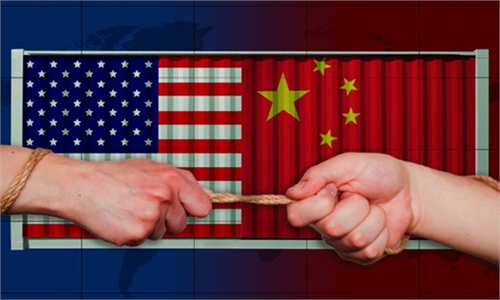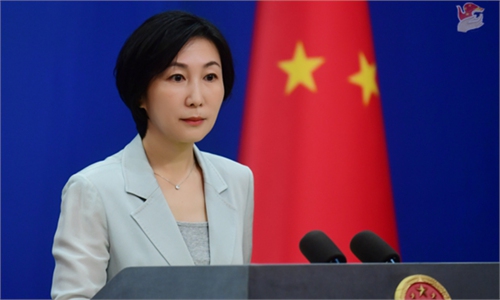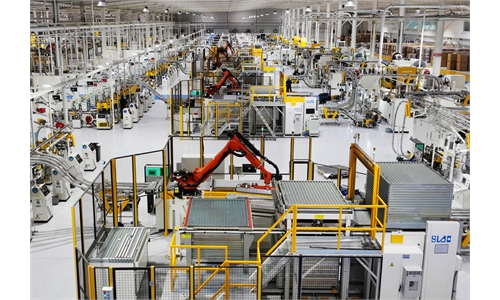
Illustration: Chen Xia/Global Times
China's BYD made the headlines in recent days as it outsold electric vehicle (EV) maker Tesla in the fourth quarter of 2023. Holding a sour-grapes mentality, some Western media outlets again hyped zero-sum competition, which is based on the bizarre logic of anti-economics claims. Such misleading hype could make businesses in the West miss the dividends of a restructuring of the global industry chain, or, more precisely, a Chinese investment boom.Chinese EV companies have grown rapidly in recent years. Insiders estimate that Chinese brands account for more than half of global sales. China has key advantages in making itself an EV superpower, with a competitive and complete industry chain.
Chinese EV exports are growing at a much faster pace than analysts anticipated. As a result, Chinese EV companies are trying to extend the industry chain and build factories overseas to produce components or assemble electric cars.
Outbound investment is a huge part of these companies' long-term globalization strategies. Chinese investment will bring good-paying manufacturing jobs and tax revenues to local economies. Globalization is a win-win proposition, not a zero-sum game.
As reported, Chinese companies from BYD to GAC Aion launched EVs for international markets while announcing plans to build factories in countries such as Hungary and Thailand. Xin Guobin, vice minister of industry and information technology, said in June 2023 that companies from all over the world are welcome to invest in China.
At the same time, China encourages domestic enterprises to invest and establish factories overseas, bringing advanced technology and products and allowing more people to enjoy the fruits of scientific and technological progress.
Unfortunately, many Westerners still tend to view the development of China's manufacturing industry through the lens of zero-sum competition. Some politicians even fabricate excuses to suppress Chinese companies, although geopolitical thinking has caused Western countries to miss out on many investment opportunities, which has had a negative impact on their economies.
Nonetheless, they will not willingly abandon their biases and protectionist practices. For a long time to come, the suppression on Chinese companies will intensify. It is unlikely to be an easy process for Chinese manufacturers to implement their internationalization strategies. So, Chinese enterprises must have the ability and courage to face challenges on the path of internationalization.
The EV industry is in the vanguard of China's manufacturing development, so Chinese EV companies need to explore a new path of addressing external challenges and integrating into global industry chains.
As an example, BYD is expanding its market with new factories. It will build its first European new-energy passenger vehicle factory in Hungary. Minister of Foreign Affairs and Trade of Hungary Peter Szijjarto was quoted by the Xinhua News Agency as saying that BYD's project is one of the most significant investments in Hungary's economic history, meaning "thousands of new jobs and the latest technology in the industry of the future."
This adds to evidence that Chinese investment plays a positive role in the development of local manufacturing. It will also help BYD increase sales in the local market.
Beyond the mature European market, China also has broad prospects for cooperation with other economies, especially developing ones. When Chinese enterprises enter a local market, their investments promote industrialization. Instead of concern over a saturated market in developed economies, untapped demand in developing markets remains the key attraction for Chinese manufacturing companies.
It is widely expected that there will be an outbound investment boom as Chinese manufacturing companies show improved overall competitiveness, catching up with or even surpassing Western competitors. The US-led West is unable to stifle China's manufacturing growth. Therefore, utilizing this investment boom, and trying to benefit from it, will be the best choice for achieving a win-win result.
The author is a reporter with the Global Times. bizopinion@globaltimes.com.cn



